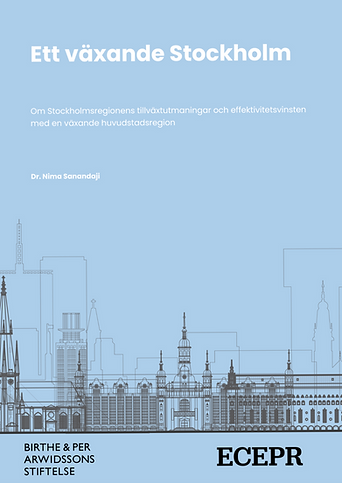European Centre for Entrepreneurship and Policy Reform
For centuries, Europe led the world in skills, innovation, entrepreneurship, and industrial growth. How can we make sure that Europe continues to prosper in the 21st century? How can a new industrial renaissance pave the way for more jobs, technology, and exports?
The European Centre for Entrepreneurship and Policy Reform (ECEPR), a pan-European public policy think tank, aims to tackle these and related questions in several different ways. We believe that pro-growth policies are neither inherently left nor right politically speaking - but instead fundamental for producing desired outcomes on both sides of the aisle.
- Dr Nima Sanandaji

Research
Explore our latest research projects and findings below.
ABOUT

Our Mission
Europe has long led the world in skills, innovation, and entrepreneurship. The European Centre for Entrepreneurship and Policy Reform (ECEPR) exists to help ensure Europe thrives in the 21st century – by advancing pro-growth reforms that can spark a new industrial renaissance and strengthen jobs, technology, and exports. We do this through rigorous, policy-relevant research and targeted outreach to decision-makers and the broader public.
Alongside our research, we also provide advisory support, helping organisations and decision-makers interpret evidence, assess reform options, and design practical, outcome-focused strategies.
We are non-partisan and outcome-driven: growth policies are neither left nor right, but essential to delivering results.

















